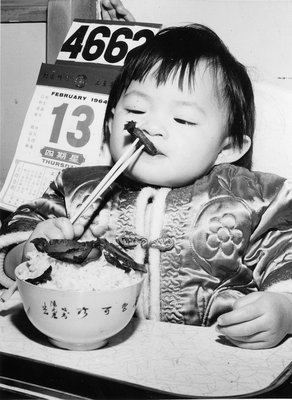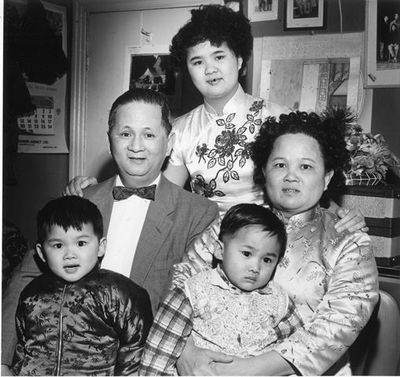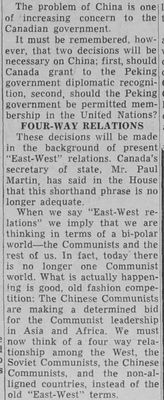The Point System vs New Immigration Boom
Starting in 1967 Canada began adopting the new Point System which quantified the social attributes of a potential immigrant. Not only did ethical bias remain discriminative against Chinese people through the points system, but also the government began looking for educated, experienced and potentially wealthy people to absorb into Canadian society. From 1966 to 1976 China experienced the period known as the "Cultural Revolution," which caused nationwide turmoil: people were encouraged to prosecute each other for committing tough crimes against the Communist government. With the freedom of expression completely shut off and the nation's economy spiralled into chaos, more and more people began seeking new opportunities in Canada.
The new immigration boom until 1978 was primarily driven by the fear of the Cultural Revolution movement. The point system favoured people like experienced workers, intellectuals, and celebrities to migrate to Canada as they received bonus points for possessing attributes that may include suiting the Canadian government's interests. However, as these people moved to Canada, they were often well-off enough to settle not necessarily where most Chinese people live, but places with the most economic opportunities. An increasing number of Chinese Canadians were now able and willing to settle farther from Chinatowns, which expanded the previously small Chinese communities in places like Oakville, Vaughan, Mississauga, and Richmond Hill. These new communities were better off with highly skilled workers, intellectuals and second-generation immigrants who quickly expanded their occupations to various industries like medical services, engineering, businesses and much more.
The Rollback of Networks
New settlers were no longer forced to cramp and stick closely to each other. In addition, the immigrants were economically better off compared to their predecessors, making them reluctant to rely on or even establish networks between families. The communal networks in Metropolitan Toronto became fragmented, and lots of Chinese Canadians quickly assimilated into Canadian culture without making any long-term contact with communities. This is the reason why downtown Toronto Chinatown is the only one of its kind in Ontario, whereas others were usually much smaller and had a lower rate of Chinese cultural presence.
Why would Chinese families and individuals who settle in Canada at this time decide to isolate themselves? The answer is fear and trauma. Decades of continuous turmoil, whether natural disasters, social movements or wars, forced many Chinese families to focus on securing themselves. Many settlers carried the memory of the communist secret police and speech censorship, making them reluctant to make contact with other Chinese. These memories carried by the settlers were hardly spoken of, except among their own family members. To the Chinese families who struggled to come to Canada, what was happening back in the homeland were atrocities and suffering, and many decided to shelter themselves from one another almost as a force of habit.



